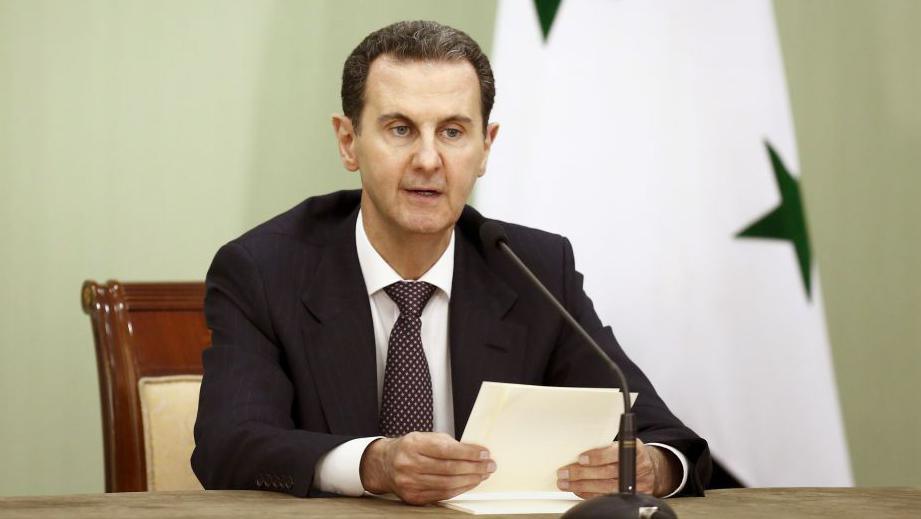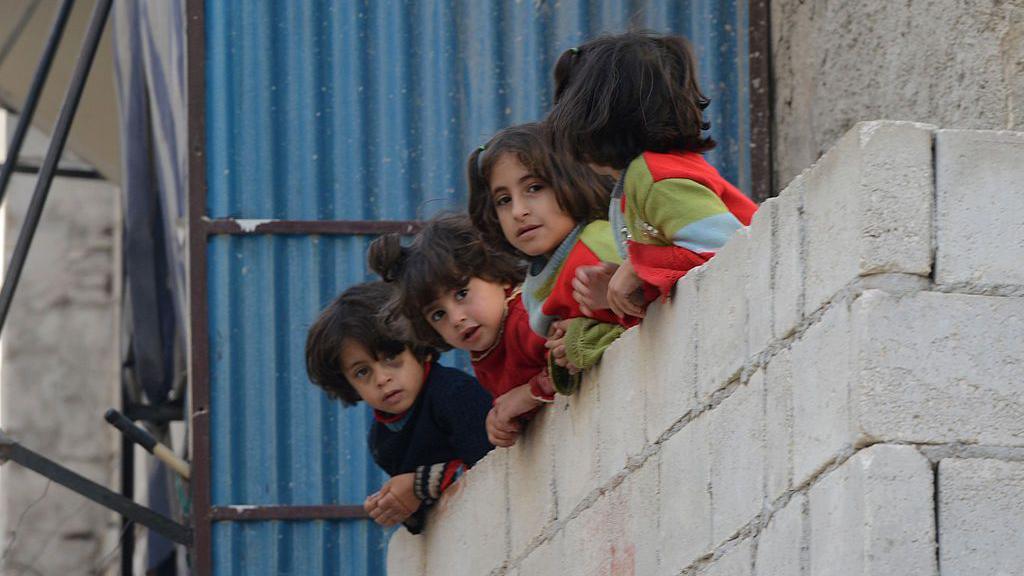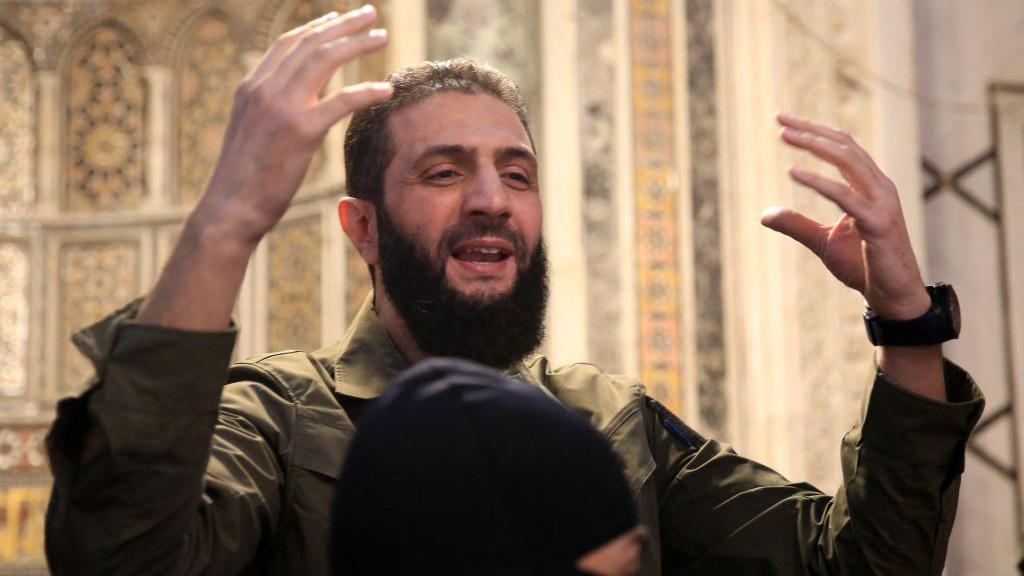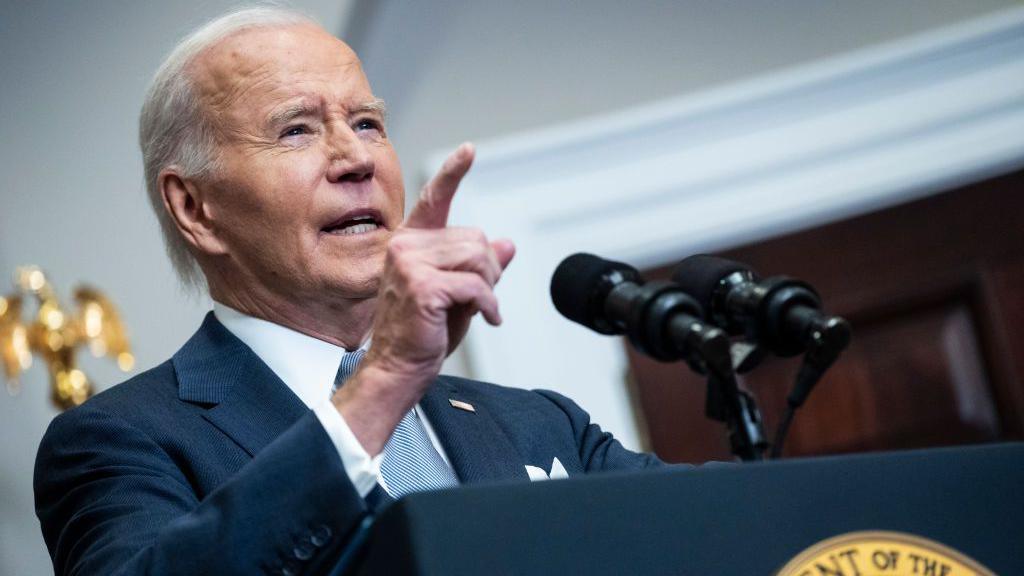What is happening in Syria?
Syria: What's happening?
- Published
Syria's ruler, President Bashar al-Assad, has escaped to Russia after Syrian rebels took control of the country's capital.
There have been celebrations in the streets of Damascus - Syria's capital city - at the news that President Assad has left.
Since 2011, a civil war has been taking place in Syria, with different groups fighting to try to seize control of the country.
Thousands of people died and millions fled the country to escape the fighting.
UK prime minister Sir Keir Starmer said: "The Syrian people have suffered under Assad's barbaric regime for too long and we welcome his departure"
What's happening in Syria?
- Published16 October 2019
Advice if you're upset by the news
- Published29 August 2022
What has happened in Syria over the last few days?

People in Damascus have been celebrating the end of President Assad's rule
On 27 November 2024, one of the rebel groups - Hayat Tahrir al-Sham (HTS) - with the support of other rebel groups - launched a surprise attack against pro-government military forces.
After 12 days of fighting, the rebels took control of Aleppo - Syria's second-biggest city, then Hama, and Homs, Syria's third-largest city.
On Sunday 8 December, HTS-led rebels said they had entered the capital city of Damascus and released people from the country's extreme military prison, Saydnaya.
Less than two hours later, the rebels announced "the tyrant Bashar al-Assad has fled" after news broke that President Assad and some of his top officials had left the country for Russia.
Syrian prime minister, Mohammed al-Jalali, said in a video that he was "ready to co-operate with" any leadership that was "chosen by the Syrian people".
Why did the civil war in Syria start?

President Bashar al-Assad has been the leader of Syria since 2000
The Assad family has been ruling Syria for more than 53 years.
The country's current ruler Bashar al-Assad became president after the death of his father Hafez in 2000.
The Assad family were known for being very strict rulers, who would punish people for disagreeing with them.
Around this time, Syrian people were unhappy that there were not many jobs available, officials were not behaving as they should do, and there was a lack of political freedom under their president Bashar al-Assad.
However, the event which caused the civil war to begin, took place in 2011.

This picture from 2012 shows children watching an anti-government protest in Aleppo, in Syria.
In 2011 in the Syrian city of Deraa, local people decided to protest after 15 school children were arrested - and reportedly tortured - for writing anti-government graffiti on a wall.
The protests were peaceful to begin with, calling for the release of the children, democracy and greater freedom for people in the country.
The government responded angrily and on 18 March 2011, the army opened fire on protesters, killing four people. The following day, they also shot at mourners at the victims' funerals, killing another person.
People were shocked and angry at what had happened and soon people began to protest in other parts of the country.
What is life like for children in Syria? (Report from 2017)
At first, the protesters just wanted democracy and greater freedom, but after government forces opened fire on peaceful demonstrations, people demanded that President Bashar al-Assad resign.
He refused, which made the protesters extremely angry.
President Assad still had a lot of people in Syria that supported him and his government, so they began to fight against people who were against the government.
Other groups, including extremist Islamist organisations, also took up fighting against President Assad, and sometimes against each other.
This fighting continued for more than 12 years, causing many thousands of people to be killed, and millions to flee their homes.
The situation became very complicated because other countries have got involved in the conflict.
Supporters of President Assad's government included Russia and Iran, while the US, Turkey and Saudi Arabia supported different rebel groups. The UK, France and other western countries also provided varying levels of support to what they consider to be "moderate" rebels.
Who is the rebel group Hayat Tahrir al-Sham?

Abu Mohammed al-Jawlani spoke to supporters at the Umayyad Mosque in Damascus hours after the overthrow of Bashar al-Assad
Hayat Tahrir al-Sham (HTS) is an Islamist militant group led by Abu Mohammed al-Jawlani, who has now started using his real name: Ahmed al-Sharaa.
In the UK and the US, the group is currently listed as a proscribed terrorist organisation, because of its past association with the extremist group al-Qaeda - who were responsible for the 9/11 attacks in the US in 2001.
However HTS said it cut ties with al-Qaeda in 2016.
The UK government has now said it will be looking into whether or not HTS should still be listed as a terrorist organisation under the Terrorism Act 2000.
Pat McFadden - the UK's Cabinet minister - said: "Yes, obviously that's got to be considered. They've been proscribed for quite a long time now.
"The leader of that group has distanced himself away from some of the things that have been said in the past.
"He is saying some of the right things about the protection of minorities, about protecting people's rights. So we'll look at that in the days to come."
What have leaders around the world said?

US president Joe Biden said the US was "closely monitoring the extraordinary events in Syria"
The UK's prime minister, Sir Keir Starmer, said: "The Syrian people have suffered under Assad's barbaric regime for too long and we welcome his departure."
But he also said, it was "early days" yet in deciding how the UK would engage with those who have overthrown President Assad.
The European Union's foreign policy chief, Kaja Kallas, called Assad's fall "a positive and long-awaited development".
The White House said US president Joe Biden and his team were "closely monitoring the extraordinary events in Syria and staying in constant touch with regional partners".
Turkey said Syria was now at a stage "where the Syrian people will shape the future of their own country".
Foreign minister Hakan Fidan said the new government "must be established in an orderly manner" and warned that "the principle of inclusiveness must never be compromised".
Iran expressed a hope for "the swift end of military conflicts, the prevention of terrorist actions, and the commencement of national dialogue" with all parts of Syrian society.
Russia said it was "following the dramatic events in Syria with extreme concern".
The foreign ministry called on "all parties involved" in the Syrian conflict to "renounce the use of violence and resolve all governance issues through political means". It also said that Russian military bases in Syria were "on high alert", although there was "no serious threat to their security".
